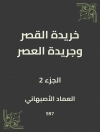In ‘The Poems of Sappho: An Interpretative Rendition into English, ‘ this collection presents a masterful reinterpretation of Sappho’s ancient verses, encapsulating the intensity of her passion, the subtleties of her imagery, and the intricacies of her emotional landscapes. The book employs a lyrical and evocative English style that attempts to remain faithful to the original Greek’s musicality and brevity, while contextualizing Sappho’s life on the island of Lesbos during the 7th century BCE. This work invites readers into the vibrant world of one of the earliest and most celebrated poets in Western literature, allowing a deeper appreciation of her innovations in lyric poetry, including themes of love, beauty, and longing that resonate through the ages. Sappho, a prominent figure in the canon of ancient Greek literature, is renowned for her exploration of personal and emotional themes that challenge societal norms. Her life, marked by complexity and artistry, reflects her deep engagement with the human experience, particularly in the realm of female relationships. It is this rich cultural backdrop, alongside her pioneering role as a female poet, that informs the interpretative choices made in this rendition, illuminating her enduring influence in poetry. This interpretative rendition is essential for readers seeking to understand the nuances of Sappho’s work within both historical and contemporary contexts. It is an invitation to connect with the timeless themes of love and loss in a fresh light, making it a valuable addition to any literary collection. Those passionate about poetry, feminism, and classical literature will find this work invigorating, offering profound insights and an accessible pathway to Sappho’s brilliant, yet fragmented, legacy.
Tentang Penulis
Sappho, the famed ancient Greek lyric poetess from the island of Lesbos, is often enshrined in literary history as a symbol of female voice and homoerotic expression. Flourishing around 630 to 570 BCE, Sappho’s life is shrouded in the mists of time, with many details lost or wreathed in legend. Primarily known for her poignant explorations of love and desire, Sappho’s powerful influence endured despite the fact that much of her poetry now survives only in fragmentary form. Her work, which once consisted of nine volumes preserved in the library of Alexandria, survives primarily in fragmentary form, having been quoted by other ancient authors. Sappho’s lyrical verses, which were composed for recitation with lyre accompaniment, showcased an extraordinary command of metaphor, a personal poetic voice, and a distinctive dialect of Greek, the Aeolic. Scholarly attempts to piece together her oeuvre and to capture the evocative beauty of her original compositions continue to this day, with translations such as ‘The Poems of Sappho: An Interpretative Rendition into English’ offering modern readers a taste of her artistry. Though much is left to speculation about her life and the full breadth of her work, Sappho’s legacy as a foundational figure in the Western literary canon is undisputed.












